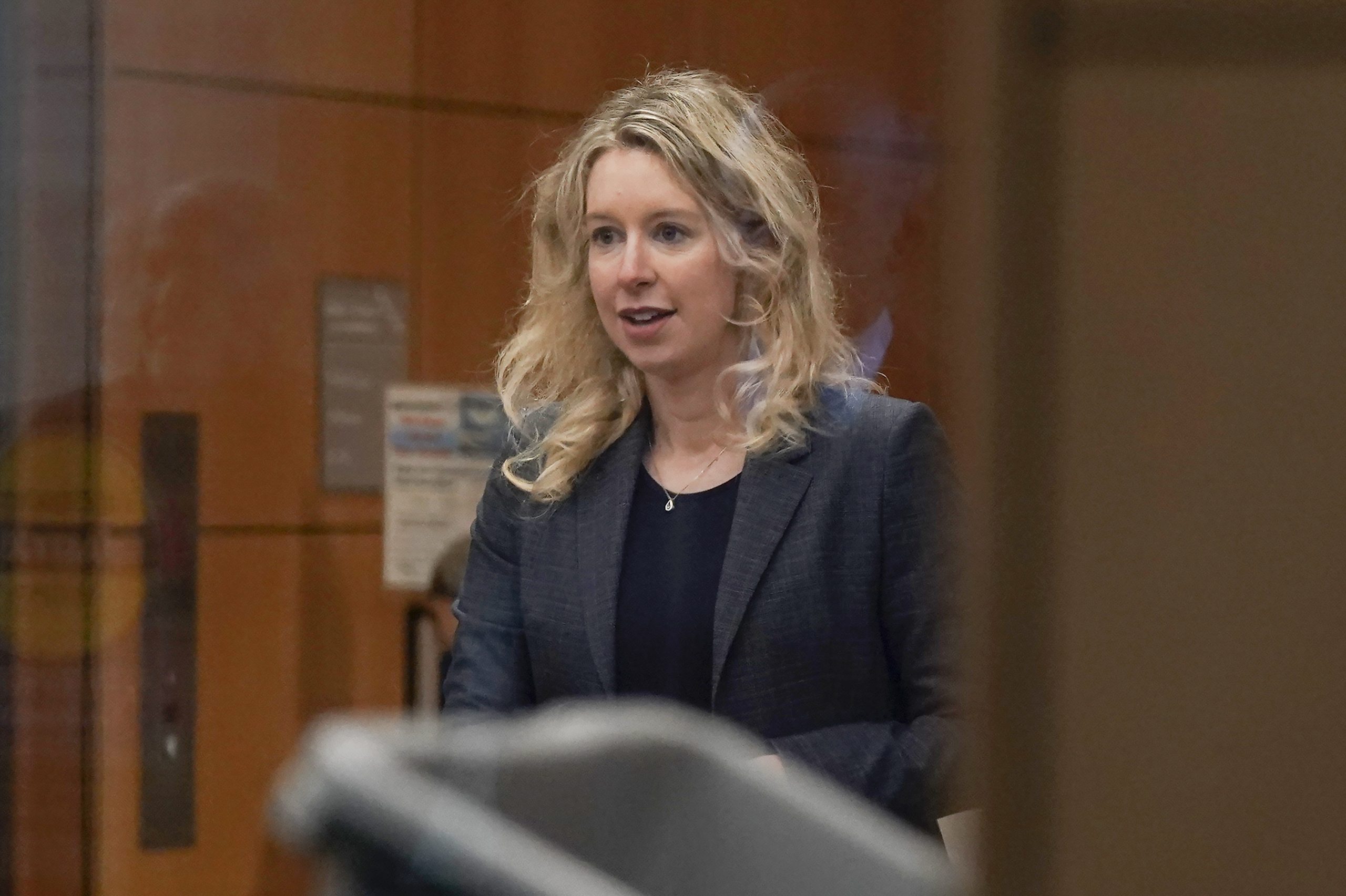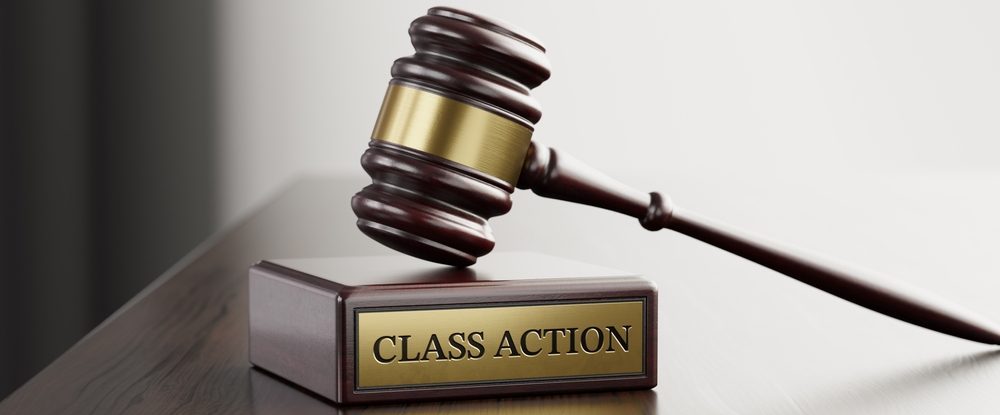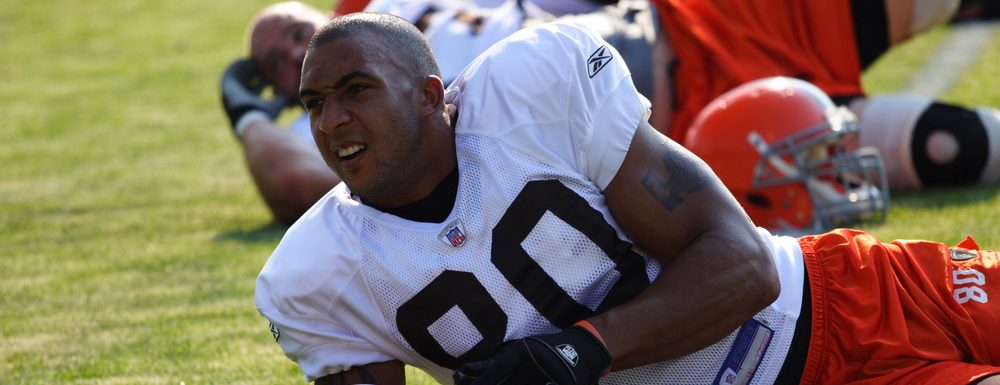Elizabeth Holmes: Celebrity Convict #9.
Crimes: Wire Fraud (3 Counts) and Conspiracy to Commit Wire Fraud (1 Count)
Sentence: 11 years 3 months
Who is Elizabeth Holmes?
Elizabeth Holmes, born on February 3, 1984, in Washington, D.C., is the daughter of Christian Rasmus Holmes IV, a former vice president at Enron, and Noel Anne, a Congressional committee staffer. Holmes has Danish ancestry, and one of her paternal ancestors, Charles Louis Fleischmann, founded Fleischmann's Yeast. Holmes grew up with a sense of pride in her family’s past, with a family friend noting that the Holmes family "yearned for the days of yore when the family was one of the richest in America."
Holmes graduated from St. John's School in Houston and was already an entrepreneurial spirit, creating her first business selling C++ compilers to Chinese universities. She attended Stanford University in 2002, where she studied chemical engineering and conducted research in the School of Engineering. During her time at Stanford, Holmes worked at the Genome Institute of Singapore, focusing on SARS-CoV-1. In 2004, after dropping out of Stanford, Holmes used her tuition money to fund the startup that would eventually become Theranos, a consumer healthcare technology company.
Founding Theranos
Elizabeth Holmes was inspired to create her company, Theranos, during a 2002 summer internship at the Genome Institute of Singapore, where she researched Severe Acute Respiratory Syndrome (SARS). In 2003, Holmes filed for a U.S. patent for a drug delivery system that could administer drugs, test their effectiveness, and adjust the dosage with a small patch.
At 19, Holmes dropped out of Stanford and used her tuition money to found Real-Time Cures, later rebranded as Theranos. The company aimed to revolutionise blood testing, offering a needle-free alternative with a finger stick collecting small blood samples in a “nanotainer.” Theranos claimed its machine could conduct various tests using just this small amount of blood. Holmes also pushed for legislation to allow tests without a doctor’s note.
With backing from venture capitalist Tim Draper and partnerships with Walgreens, Theranos promised low-cost, rapid results. However, these claims were later discredited, and the company faced major allegations as its methods were questioned.
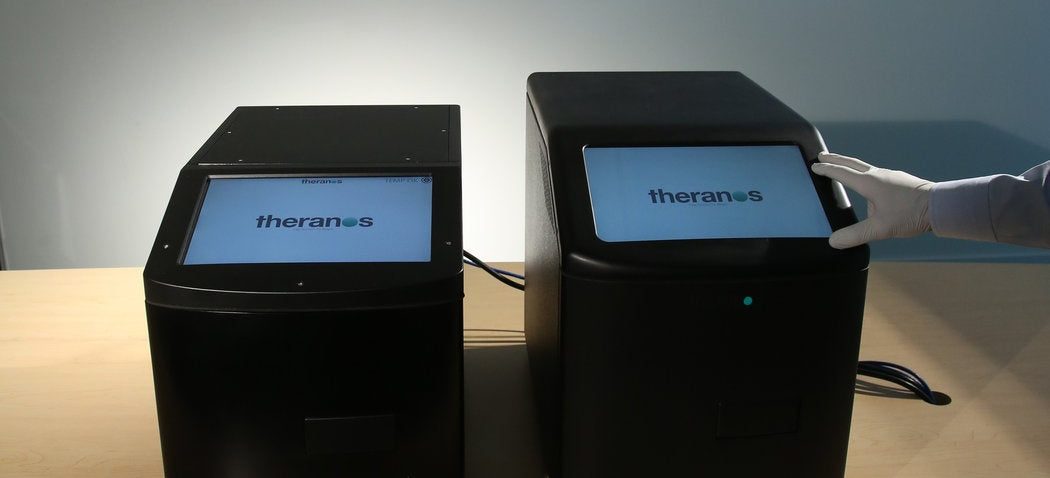
Net Worth
By 2014, Theranos was valued at $9 billion, making founder Elizabeth Holmes the world’s youngest self-made female billionaire at 30, according to Forbes. Holmes owned 50% of the company, with her net worth peaking at $4.7 billion by 2015, as reported by Inc. magazine. As Theranos gained attention, so did Holmes, who became a media sensation. Often seen dressed in black with a mock turtleneck, she was frequently compared to Apple co-founder Steve Jobs, a comparison she embraced. Holmes was known for working seven days a week and encouraged the same dedication from her employees. Her deep-pitched voice also garnered attention, with some speculating she deliberately lowered it to gain respect in Silicon Valley’s male-dominated environment.
However, Holmes’ fortune has since vanished. Today, her net worth is reported as $0, and she no longer alters her voice, according to a New York Times profile.
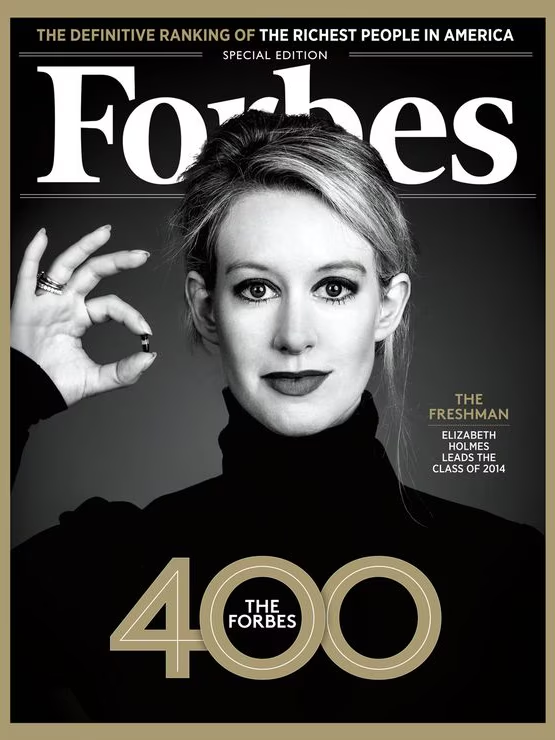
The Fall of Theranos
In the fall of 2015, Theranos faced a major crisis after a series of investigative reports by The Wall Street Journal and other media outlets exposed significant problems within the company. Key revelations included the fact that many blood samples were tested on standard diagnostic machines, not the “Edison” machine that founder Elizabeth Holmes claimed to have perfected. Additionally, tests performed on the Edison machines often produced highly inaccurate results. The company had also grossly inflated its revenue forecasts to attract investors.
Former employees came forward, alleging that Holmes and Theranos President Ramesh “Sunny” Balwani were aware of the flaws in the technology but pressured staff to falsify data and conduct fake demonstrations for investors. The company's secretive culture and threats from its legal team only fueled the growing concern.
Federal agencies, including the FDA and Centers for Medicare & Medicaid Services (CMS), launched investigations. In October 2015, the FDA deemed the company’s “nanotainer” vial an “uncleared medical device.” By 2016, the CMS shut down Theranos' Newark laboratory due to patient safety concerns, and Theranos closed its “Wellness Centers.”
In 2017, the company settled with the CMS, paid a $30,000 fine, and was banned from blood-testing operations for two years. It also refunded $4.6 million to Arizona customers. In 2018, the SEC charged Holmes and Balwani with fraud, leading to a settlement where Holmes paid a $500,000 fine and lost control over Theranos.
After leadership changes, layoffs, and ongoing investigations, Holmes stepped down as CEO in June 2018. Theranos officially dissolved in September 2018.
Crimes and Charges
Holmes continued to deny fraud allegations against her, but on June 14, 2018, a grand jury indicted her and former partner Ramesh "Sunny" Balwani on nine counts of wire fraud and two counts of conspiracy. A final indictment in July 2020 added an extra wire fraud charge. After delays due to the COVID-19 pandemic and Holmes' pregnancy, her criminal trial began in September 2021. Holmes pleaded not guilty and testified for seven days during the 15-week trial.
On January 3, 2022, Holmes was found guilty of three counts of wire fraud, amounting to nearly $145 million, and one charge of conspiracy. She was acquitted on four charges, while the jury was unable to reach a verdict on three others.
Prison Sentence
In November 2022, Holmes was sentenced to 11 years and three months in prison, with three years of supervised release, and must pay $452 million in restitution. She began serving her sentence on May 30, 2023, at a minimum-security women’s prison camp in Bryan, Texas. In April 2023, Holmes' bid to remain free while appealing her conviction has been denied. U.S. District Judge Edward Davila ruled on April 24, 2023, that there was not enough evidence to justify granting her bail while she appeals her 2022 fraud conviction. Holmes, 39, was found guilty of defrauding investors in the failed blood-testing company, which led to her 11-year prison sentence.
Holmes had hoped to remain free while her lawyers argued that misconduct during her four-month trial could have resulted in an unfair verdict. However, the judge concluded that her case didn’t meet the necessary criteria to delay her sentence. According to new records, Holmes, 41, is now scheduled to be released on 16 August 2032, from a federal women’s prison camp in Bryan, Texas. This marks a reduction of over four months from her original release date of 29 December 2032.
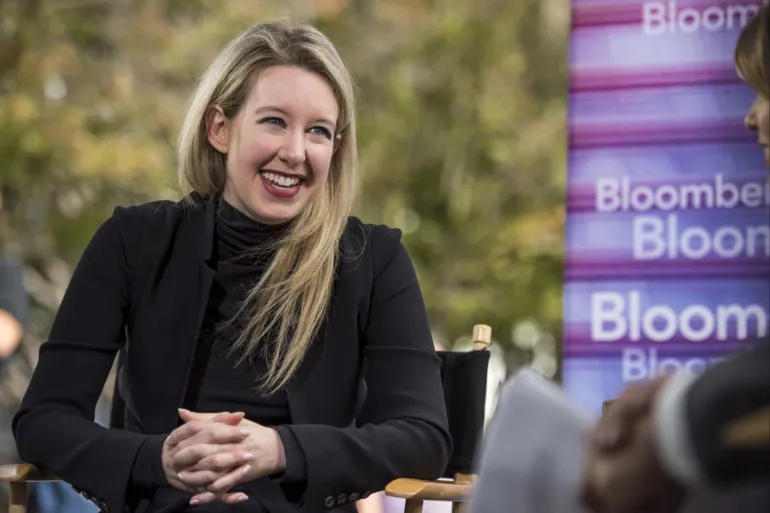
Relationship with Sunny Balwani
Elizabeth Holmes and Ramesh “Sunny” Balwani shared a complex relationship both personally and professionally. The two met while Holmes was studying in China as a teenager, and despite a nearly 20-year age gap, their relationship eventually turned romantic. By 2005, they were living together, and in 2009, Balwani joined Theranos, where they kept their relationship secret from investors and employees.
In 2016, as Theranos faced mounting controversies, Balwani left the company. The couple also ended their romantic relationship, and Holmes moved out of their shared home.
Holmes later testified in her federal trial, accusing Balwani of being emotionally and sexually abusive, alleging control over her diet, schedule, and other aspects of her life. Balwani’s legal team denied these claims. Despite their joint indictment, they were tried separately. Balwani was convicted on all 12 charges and is currently serving a 13-year sentence.
Husband and Children
In 2017, Elizabeth Holmes began dating entrepreneur Billy Evans, whose family owns a hotel company in San Diego. The couple married in 2019 and lived together in California before Holmes began serving her prison sentence.
Holmes gave birth to their son, William, in July 2021, which caused a brief delay in the start of her criminal trial. In February 2023, Holmes and Evans welcomed their daughter, Invicta. Despite her prison sentence, Holmes will be permitted to have visits from her family, including her husband and children.



